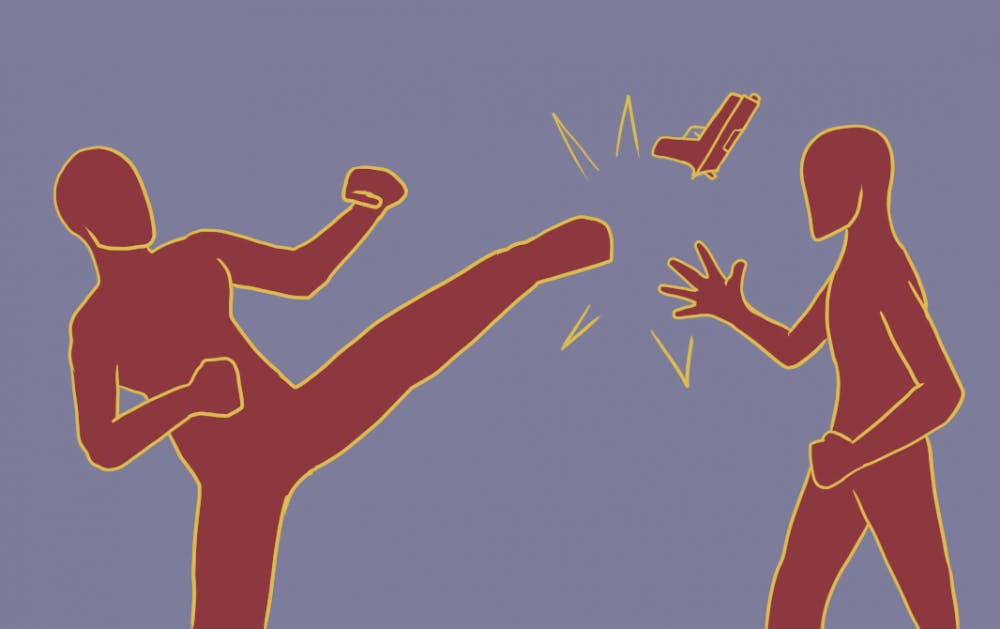The recent school shooting at Marjory Stoneman Douglas High School in Parkland, Florida was a national tragedy in which 17 innocent students and faculty members were killed.
Sadly, this is not an uncommon thing for students in the U.S. Many young people have grown numb to the repeated occurrence of school shootings in America, which is both devastating and abnormal. The frequency of these events indicates that there is something grossly wrong with America's gun and mental health laws.
Whether this happens because of mental health issues, guns, childhood issues or all three, now is the time to stop letting the buzz of national tragedies die off after a couple of weeks. The fight must remain ongoing, and students should continue to press Congress to start working on this problem.
If the federal and state governments fail to come up with a plan to ensure safety on campuses across America, then ASU students must take matters into their own hands.
Congress has failed to make a compromise on this issue and invoke some sort of substantial change, despite the continued occurrence of gun violence in schools. Politicians, activists and constituents from various sides of the political spectrum have been promoting their own solutions for years now, but the federal government has yet to choose one and work with it.
Learning safety protocols, defense mechanisms and how to identify a potentially dangerous situation are all crucial to staying safe in public areas. If violence is going to continue to plague our nation's campuses, students must know how to hinder it.
Safety protocols, such as learning how to disarm a person or hide from a shooter, do not guarantee safety or provide for permanent solutions — there are much bigger issues that need to be addressed in order to prevent these tragedies from happening. However, learning how to respond and act during a school shooting could save lives and give individuals the power to fight back against terrorists and murderers.
“People who want to attack others don’t want a fight — they want a soft target,” said David Bremson, ASU alumni and owner of Safemind LLC. “The people who want to commit violence don’t do it against anyone who will meet them with force. It (has) really come down to being aware of your surroundings, knowing where the bad and good places are.”
Experts in gun safety believe that it is up to the individual to identify present dangers and how to avoid them.
“Situational awareness is key,” said Whitney Wingfield, ASU alumna and owner of Arizona Personal Defense. “Every time I go inside a building, or any area where my access is limited, I see where my nearest escape would be. You need to be aware of triggers that would open you up to potentially being harmed.”
One of the biggest problems in society is that many people have a mindset that extreme tragedies will not happen to them, which may prevent them from taking safety measures seriously. Unfortunately, these tragedies could potentially occur in any public area, especially on a campus as massive as ASU's.
”Parking lots, ATMs and gas stations are top places for attacks in public places. Be mindful in those situations in order to avoid risk,” said Bremson.
Learning defense mechanisms can give students power to fight back. There is a solution out there and Congress must begin to look into different options instead of letting these tragedies re-occur.
Until then, we must learn how to defend ourselves.
Reach the columnist at amsnyde6@asu.edu or follow @AnnieSnyder718 on Twitter.
Editor’s note: The opinions presented in this column are the author’s and do not imply any endorsement from The State Press or its editors.
Want to join the conversation? Send an email to opiniondesk.statepress@gmail.com. Keep letters under 500 words and be sure to include your university affiliation. Anonymity will not be granted.
Like The State Press on Facebook and follow @statepress on Twitter.
Continue supporting student journalism and
donate to The State Press today.




